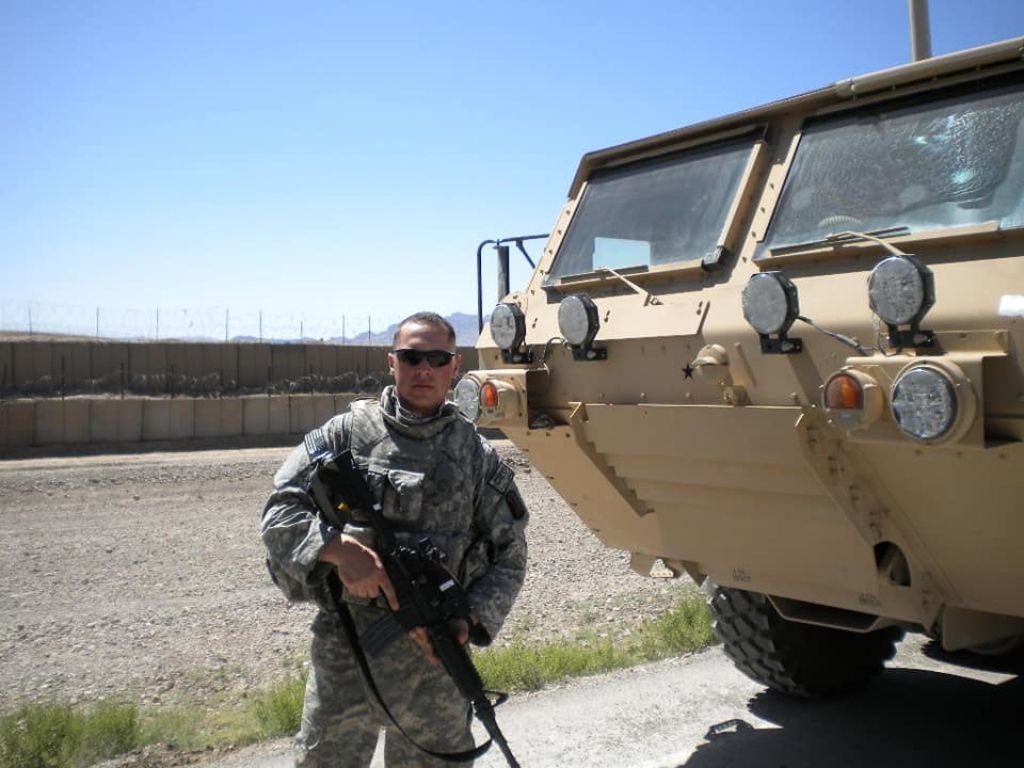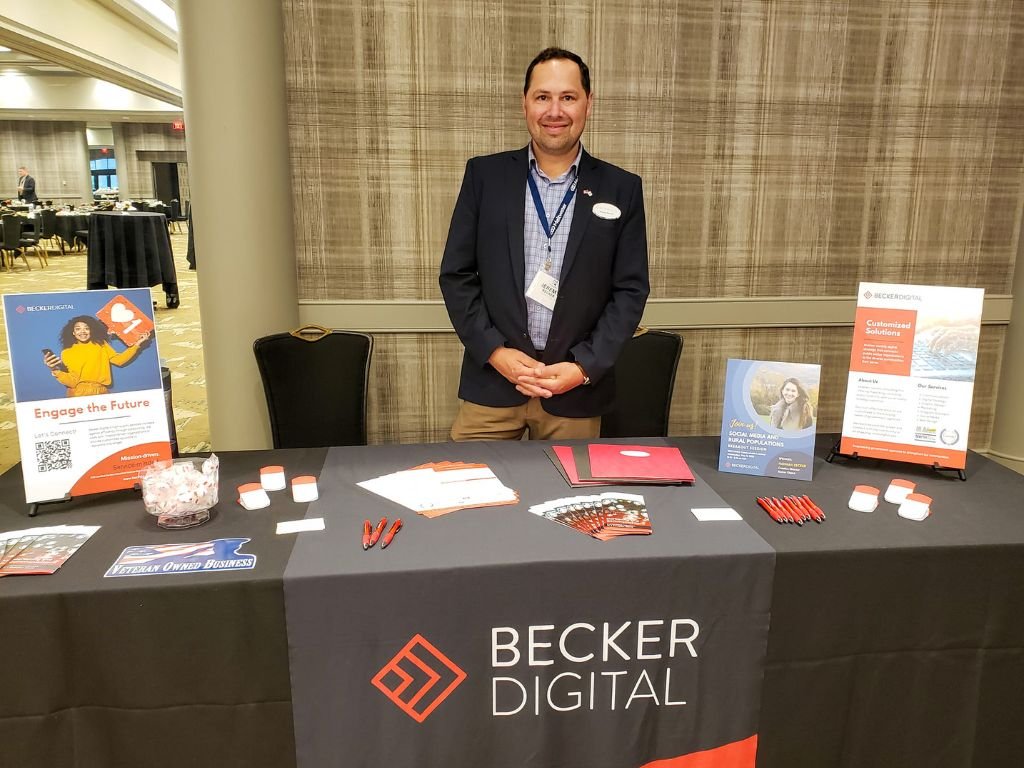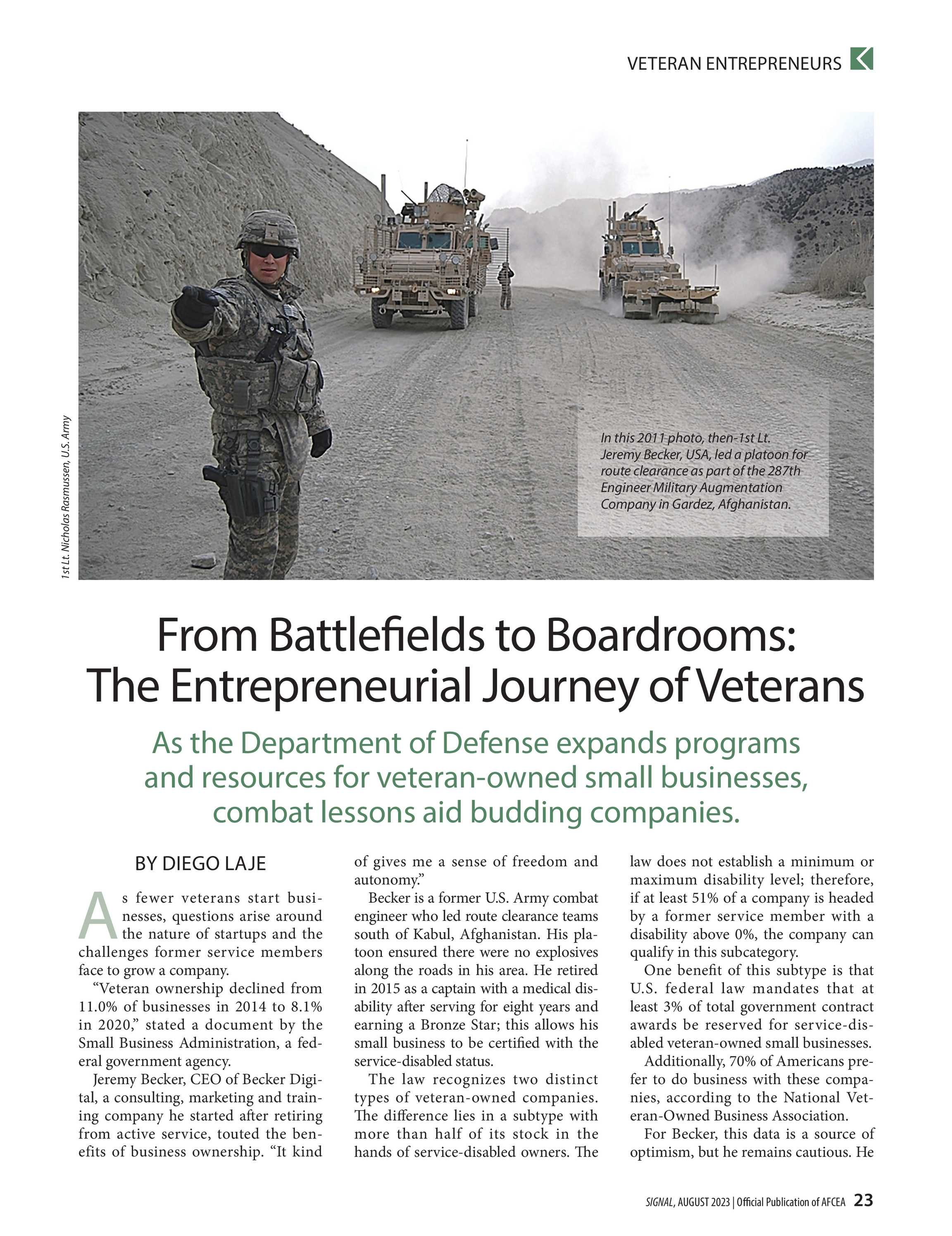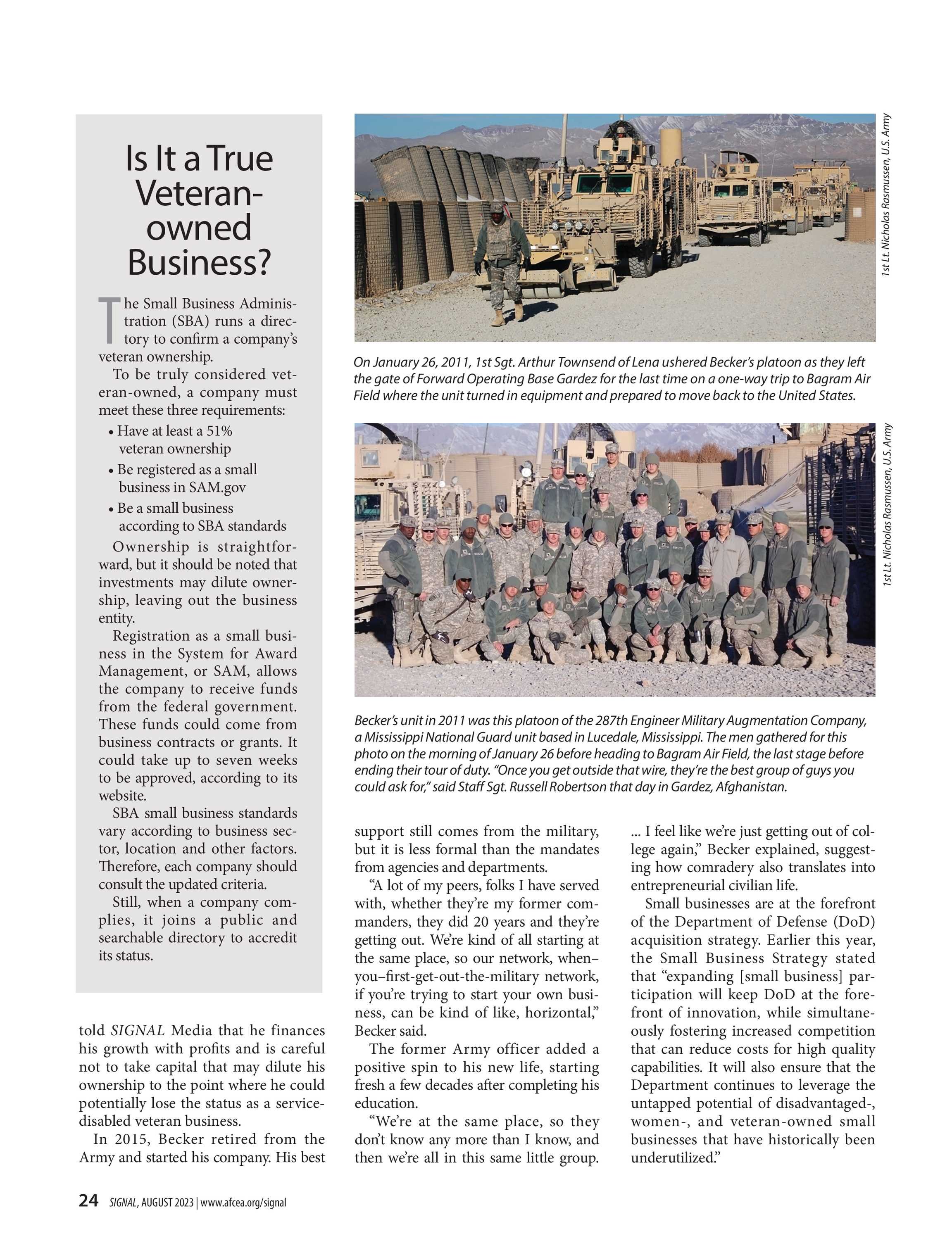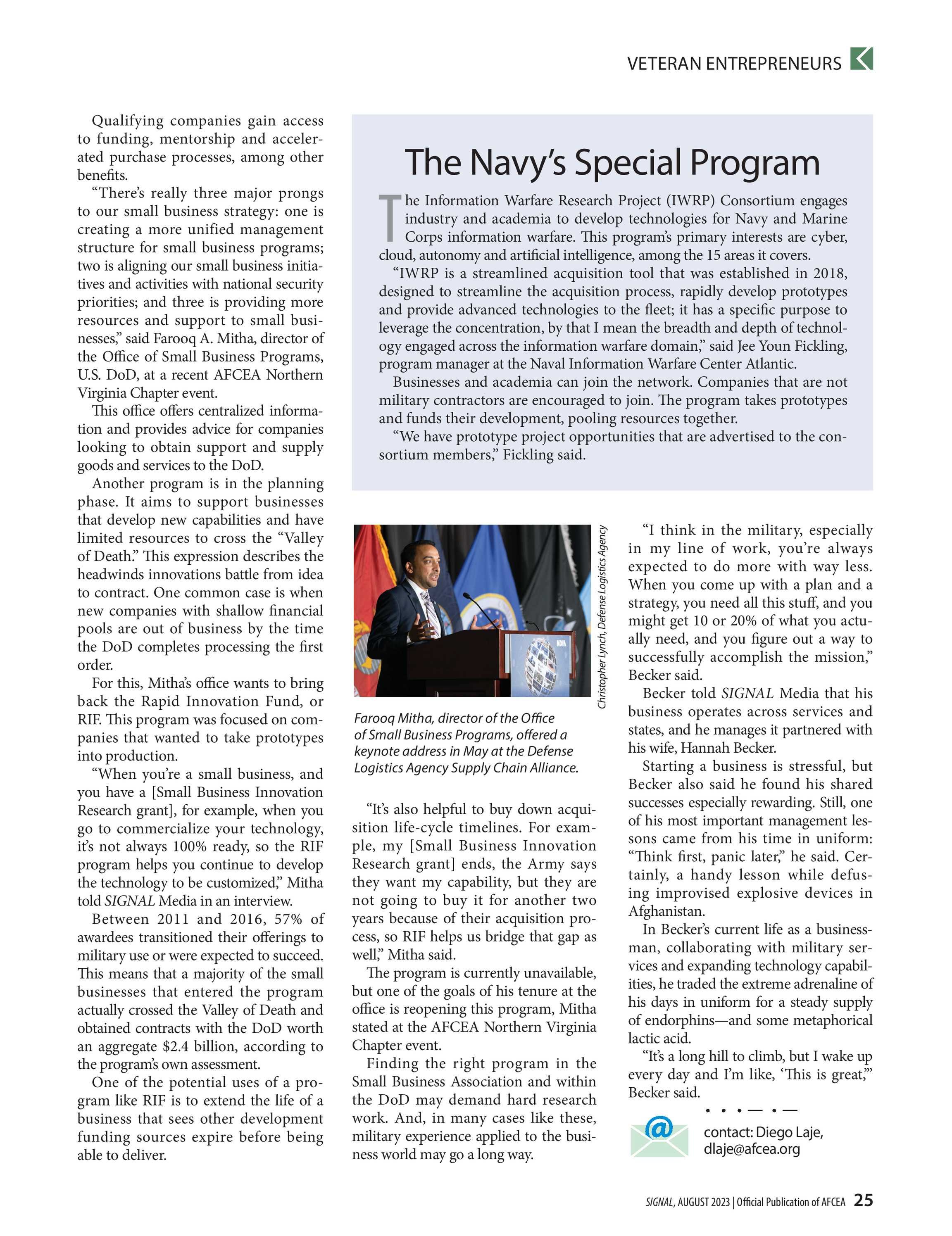Continuing a Lifetime of Service as Veteran-Owned Small Business
For decades, veteran-owned small businesses were major contributors to the American economy. According to the Institute for Veterans and Military Families, nearly half of World War II veterans and approximately 40 percent of Korean Veterans started their own businesses. However, in the early 2000s, veteran small business ownership and startup rates steadily declined. Today, in 2023, veteran entrepreneurship rates continue to fall. This loss of entrepreneurial engagement by a historically enterprising group has far-reaching impacts on our local communities, region, and nation.
4 Challenges Post-9/11 Veteran Entrepreneurs May Encounter
Starting a business isn’t easy, especially in the taciturn market that is the post-recession, post-pandemic, digitally-scaled Corporate Age. While some educational resources are available to support veteran entrepreneurship, many Post-9/11 veterans encounter numerous challenges related to starting and growing a small business.
Here are four challenges faced by today’s veteran entrepreneurs:
Limited Local Networks and Community Support: Military life’s transient nature leaves many transitioning service members without a strong local community network post-military service. This can make the already isolating experience of starting a new business even more challenging, as veteran entrepreneurs face bootstrapping infrastructure on all fronts - business and network.
Higher Disability Rates Among Post-9/11 Veterans: Post-9/11 Veterans have higher disability rates than veterans of previous service eras. Medical appointments, health-related challenges, and physical restrictions that often accompany service-connected disabilities can present numerous challenges as veteran entrepreneurs seek to cross the chasm of small business start-up.
Growing Civilian-Military-Divide: As fewer and fewer Americans (less than 1 percent of adults) serve our country through military service, there is a lack of understanding and awareness regarding the modern military community or lived experiences. People may avoid, fear, and stereotype what they are unfamiliar with. Unfortunately, we see this emerge as a civilian-military divide across communities.
Changing Sentiment Regarding Small Business: While small businesses are often cited as the “backbone” of the American economy, consumer decisions indicate a strong preference for larger corporations over small businesses in terms of actual purchases. New companies may not be able to compete with the amenities and offerings of scaled operations of a larger corporation; however, small businesses require patronage to grow into larger companies. This community-enriching small business growth won’t happen if consumers continue to opt for the ease of Amazon vs. “Mom and Pop Shops.”
Veteran-Owned Small Businesses Have The Potential for Big Impact
According to the Small Business Administration, veteran-owned small businesses are more likely to succeed than non-veteran-owned small businesses. Historically, veteran-owned small businesses were reported to be more profitable and sustainable than non-veteran-owned small businesses. Starting a business requires commitment, hard work, and ingenuity in “making things work” with insufficient resources - all skills cultivated during military service. Veteran entrepreneurs know how to succeed when the odds of success are stacked against them, and this ethos of resilience and innovation in the face of adversity provides veteran entrepreneurs with a strong foundation for meeting the challenges of building a business.
Communities with high rates of veteran entrepreneurship can thrive economically and benefit from the unique skills and experiences that veterans bring, as veterans give back to their communities. Recent studies show that veterans are more likely to volunteer, vote, and help their neighbors than their civilian counterparts. For many members of the Warrior Class, dedication to service beyond self is evident in everything they do, including entrepreneurship. This type of civic engagement from veteran entrepreneurs offers immense benefits to local communities that support veteran-owned small businesses.
Becker Digital - A Service-Disabled Veteran-Owned Small Business Success
In 2015, Jeremy and Hannah Becker founded Becker Digital - a small consulting firm providing marketing services to local government agencies and nonprofit organizations. The decision to start Becker Digital wasn’t just a fleeting dream but an opportunity to continue a lifetime of mission-driven service to our nation. Over the past eight years, unique and exciting client projects have taken the Becker Digital team all across the United States - from downtown Washington, D.C., to rural Wyoming! Every project has been a unique opportunity to tackle dynamic public-facing challenges by delivering customized, innovative solutions.
While bootstrapping a company wasn’t always easy, it’s been extremely rewarding in terms of nationwide impact. The Becker Digital team has had the opportunity to support meaningful work across diverse communities and multiple sectors, including notable projects such as connecting rural veterans and caregivers with mental health resources, combatting cyber harassment at colleges and universities, recruiting military spouses for public service positions, countering mis/disinformation, enhancing federal veteran programs internal efficiency, and improving disability-inclusive communications national nonprofits. The opportunity to make a positive difference in our communities has been the ongoing inspiration for this veteran-owned small business during all seasons of business development!
Incorporating Values of Service in a Service-Disabled Veteran Owned Small Business
At Becker Digital, one of our founding principles was to do our part to address a lack of meaningful employment opportunities for two historically underemployed and unemployed demographics - disabled veterans and military spouses. Through our founder’s lived experiences as a disabled veteran and military spouse, our leadership team was well acquainted with the employment-related challenges all too often faced by members of the modern military community. Thus, Becker Digital is committed to working with military-connected consultants and team members, including disabled veterans, military spouses, National Guard/Reserves, veteran caregivers, surviving spouses and family members. We understand the immense value the military and veteran community members bring and are proud to support organizational clients with our 100% military-connected, multi-disciplinary team!
A second component of continued service that we incorporated into our veteran-owned small business operation is to provide quality support to government agencies and nonprofit organizations focused on the modern military and veteran community. During a lengthy deployment to Afghanistan, Jeremy Becker recognized a shortfall of effective and reputable service contractors supporting defense initiatives. Government agencies were spending excessive money on outdated, ineffective technology and unqualified consultants who were not incentivized to address public sector organizations' problems at all levels. The consequences of such a support shortfall in a combat zone could be deadly. Jeremy decided if he made it back stateside alive, he’d take steps to address the lack of quality public-private partnerships plaguing our nation, hence, the founding of Becker Digital - a trusted partner in public service.
A third aspect of Becker Digital’s commitment to continued service is our dedication to supporting meaningful nonprofit organizations through board service and volunteering. This is evidenced in the extensive philanthropic work of our leadership team. Jeremy Becker, CEO, volunteers hundreds of hours each year supporting veteran organizations. Today, he serves on the Board of Directors for Military Officers Association of America (MOAA) Chapter - an organization that provides financial aid for disabled veteran families and scholarships for the children of veterans. Hannah Becker, Vice President, has served on numerous advisory boards and councils for national nonprofit organizations that address military family food insecurity, military spouse career challenges, and legislative support for combat-wounded veterans. Self-employment gives our team the autonomy and schedule flexibility to donate time and resources to these important causes.
Advice for Aspiring Veteran Entrepreneurs
Becker Digtal’s CEO, Jeremy Becker, has the following words of advice for aspiring veteran entrepreneurs contemplating starting their own small business:
“It’s not easy, but it’s worth it. Starting your own business in today’s world is challenging. There will be many days that you lose sleep, second guess your decision and question your sanity for forging a secure job with a steady paycheck just for the chance to make your business idea a go. But when you realize your work is making a difference in individual lives, organizations, and communities, it makes the stress and uncertainty of bootstrapping a new company all worth it.
A few tips for veteran entrepreneurs:
Take care of your team. People are always more important than process. It’s easy to focus on tasks instead of the team; however, this management strategy will cost your company its most valuable assets - the people who make it great.
Invest in your professional network. Who you know and the strength of those network connections are what will push your business forward. Many veterans have a network of trusted professionals from their time in the service. Prioritize nurturing those connections to cultivate a strong professional network. Remember: We’re all just a few degrees of separation (i.e., network connections) from anyone worldwide.
Building anything of value takes time. Realize that sustainable success in small business isn’t going to happen overnight. Strategize for long-term results to set your business up for success. The business actions and decisions that make the most significant difference aren’t always thrilling or exciting; instead, the culmination of consistent dedication and determination lands contracts.
Utilize the resources that are available to veteran entrepreneurs. The Veteran Institute for Procurement (VIP) Program was most valuable for me. I recommend this resource to any veteran interested in starting a small business engaged in government contracting. VIP provided me with a phenomenal support network of fellow service-disabled veterans seeking to make a positive difference in our world via entrepreneurship.”
Learn more about Jeremy Becker’s entrepreneurial journey in SIGNAL Magazine’s article, “From Battlefields to Boardrooms: The Entrepreneurial Journey of Veterans”
About Becker Digital:
Founded in 2015, Becker Digital is a veteran-owned consulting firm that provides customized services to mission-driven organizations. We specialize in bridging divides between public sector organizations and the diverse communities they serve. Digital strategy, program management, and marketing consulting are our areas of expertise. Our company delivers high-quality services to government agencies and nonprofit organizations seeking to increase efficiency and effectiveness.
Contact us to schedule a consultation and discuss how we can support your organization’s mission.
Becker Digital is proud to be a CVE-verified Service-Disabled Veteran-Owned Small Business (SDVOSB), SBA-certified HUBZone Business, and Virginia SWaM-certified (Micro, Small, and Service-Disabled Veteran-Owned) Business.


